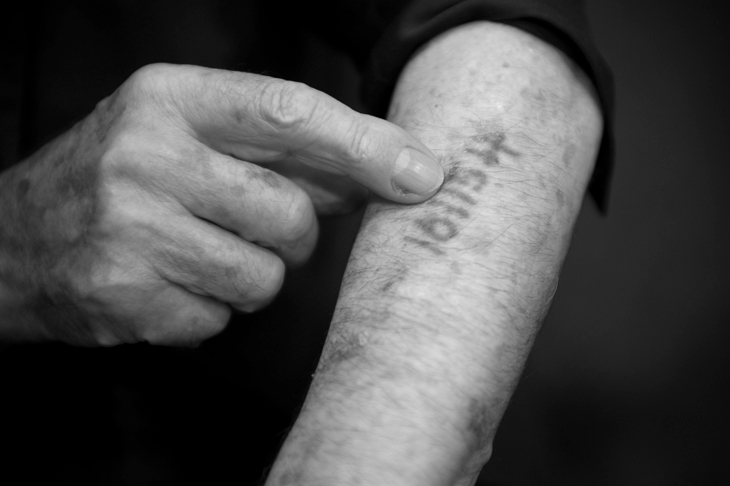The return of Sue MacGregor’s long-running Radio 4 series The Reunion (produced by Eve Streeter) is a welcome reminder of just how good radio can be at taking us inside an experience while at the same time opening our minds to things we should know about. First there is MacGregor herself, such a vibrant, resonant voice, never too fast or too slow. Then there is her understanding of how to communicate. Each week she gives a short resumé of how and why the people she has gathered in the studio were first brought together, summarising complicated events in such a concise but clear way, giving all we need to know without burdening us with too much detail. When the conversation with her chosen guests begins, we know exactly why we should be listening to them. And, by the end of the programme, you will realise that MacGregor has rarely spoken beyond that introduction, intervening only to ensure that everyone stays on track.
Sunday’s programme was particularly powerful, as she brought together four survivors of the Auschwitz concentration camp. As Anita Lasker-Wallfisch said forcefully after being asked by MacGregor whether she has any peace of mind now: ‘I don’t know what peace of mind is. We’re still fighting, trying to educate people…’
Zigi Shipper was 14 and living in the Warsaw Ghetto when he was told to report to the railway station where he was packed into a cattle truck. Some people suffocated because of the crush. ‘How can a child of 14 hope that people would die so that I could sit down?’ he recalled, still ‘ashamed’ of his thoughts. Susan Pollack’s mother was gassed immediately on arrival at the camp; she lost 50 members of her family. Lily Ebert, whose mother, brother and younger sister were also all sent straight to the gas chambers, still wears the gold pendant given to her by her mother. She managed to hide it from the guards all through her incarceration.
How important is it to talk about what happened to you, asked MacGregor. ‘Important to me?’ said Lasker-Wallfisch. ‘It’s not important to me. It’s important for other people.’ Each of them had coped very differently with Auschwitz and its personal legacy. They didn’t interrupt each other but kept very much to their own witness. What they shared was an unusually candid way of talking, and a strength far beyond the common way.
Unusual self-belief is the common factor shared by the people who appear in Dominic Lawson’s series for Radio 4 Why I Changed My Mind (produced by Jonathan Brunert). Dr Waney Squier, for example, a consultant paediatric neuropathologist who studies the development of the brain in infants, had taken part as an expert witness for the prosecution in the trials of parents accused of killing their babies by shaking them to death. Then she read about new research which made her question the accepted hypothesis that if a baby showed signs of bleeding in the brain or behind the eyes it was likely to have been shaken. She had followed the theory of shaken-baby syndrome ‘because everyone believed it’. But then she asked why, if the baby had been shaken hard enough to cause bleeding in the brain, were there no neck injuries or signs of bruising? In one notorious case, she first appeared as a prosecution witness and then swapped sides when the case was brought to appeal and the conviction eventually quashed. So vicious was the response of her medical colleagues to her turnaround that she was accused of not providing evidence in an ‘impartial’ fashion, and struck off the medical register (she has since been reinstated).
Why, asked Lawson, pertinently. Why were your colleagues so appalled that you had changed your mind? Dr Squier thought it was because doctors are trained to inspire confidence in their patients and ‘they don’t like to admit they’re wrong’.
Lawson persisted, ‘Do women have more moral courage?’
‘I think that may be the case,’ said Squier, opening up another hornet’s nest.
Indigo Children, Hannah Silva’s play (also for Radio 4), raised questions about another difficult medical diagnosis: autism. Ros, who has her own podcast, Roscast, which is as chatty and self-revealing as many others, wants to ‘come out’ and reveal that she is autistic. Her mother Lydia is appalled. The play uses Ros’s story to talk about labels and what they mean. Are they helpful?
‘Why am I doing this?’ Ros asks.
‘Because I’m a millennial… I doubt my own existence.’
This play stood out because of the production, by Melanie Harris and Jude Kelly, the theatre director, who was directing her first play for radio. The cast (Lizzy Clark, Jaime Winstone and Sylvestra Le Touzel as a fake doctor who feeds off the anxieties of others) were vividly drawn (with some sharp dialogue) and distinctive; the sound design (by Eloise Whitmore) added rather than took away from what was being said. As Kelly says in her introduction to the broadcast: ‘When you don’t have the bodies there or anything to visualise, you really are concentrating on the lilt, the tone, the subtlety of the voice itself and all that the voice carries.’






Comments